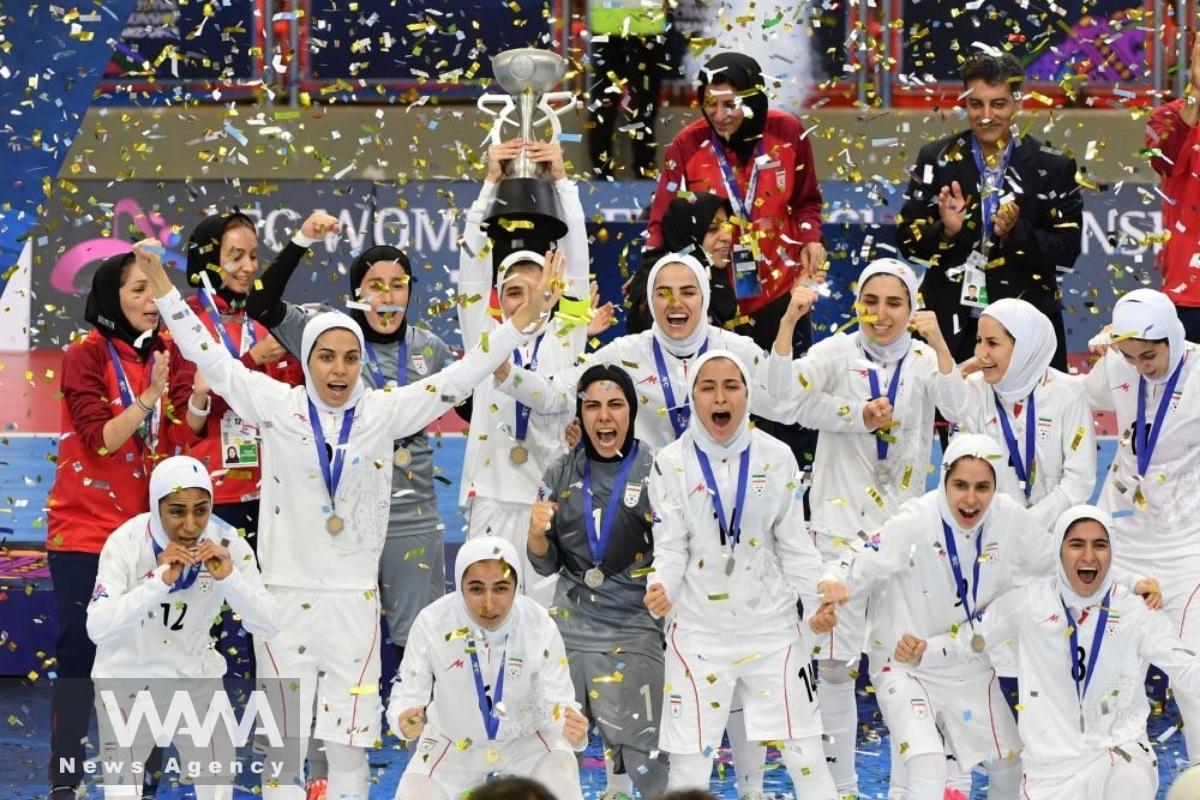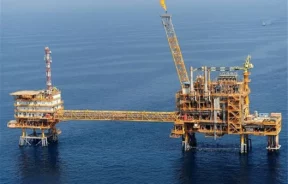Iran Banu, a Fully Female Flight
WANA (Dec 23) – On Sunday, December 22, 2024, the “Iran Banu” flight, operated entirely by an all-female crew and carrying 110 elite Iranian women, landed at Shahid Hasheminejad International Airport in Mashhad. The flight was piloted by Captain Shahrzad Shams, Iran’s first female pilot, and coincided with the birth anniversary of Fatimah Zahra (PBUH), celebrated in Iran as Mother’s Day and Women’s Day.
This event garnered widespread attention not only due to its all-female crew but also for its symbolic significance in honoring Women’s Day and showcasing the capabilities of Iranian women.
Elite Women: Ambassadors of Hope and Progress
The passengers on this flight were 110 distinguished Iranian women active in various fields of science, culture, art, and society. Some of these women have won international awards or are pioneers in their specialized fields. Their trip to Mashhad was aimed at visiting the shrine of Imam Reza (PBUH) and attending a special ceremony.
The Iran-Banu #flight, with 110 elite Iranian women and piloted by #Iran ‘s first #female pilot, Shahrzad Shams, landed in Mashhad. This is the first time a flight with all female passengers and crew has landed at this airport.#Women pic.twitter.com/7q6pmBh4SK
— WANA News Agency (@WANAIran) December 23, 2024
Shahrzad Shams: A Pioneer in Iran’s Skies
Captain Shahrzad Shams, who commanded this historic flight, is recognized as the first female pilot in Iran’s aviation industry after the Islamic Revolution. She began her career as a co-pilot on the Fokker F100 aircraft and, through determination and perseverance, rose to the rank of captain.
Her presence in the cockpit has inspired countless Iranian women to enter specialized and technical fields. By entering the aviation industry, she has challenged gender stereotypes in this field. Speaking about the flight, she remarked:
“This flight wasn’t just an ordinary journey; it was an opportunity to demonstrate that Iranian women can prove their competence and capabilities in any situation.”

The West’s Dishonesty on Women’s Issues
WANA (Dec 17)- This morning, in a meeting with thousands of women and girls, the Supreme Leader of the Islamic Revolution criticized the Western approach toward women’s issues, highlighting an example of dishonesty by politicians and capitalists in this field. He stated, “Various groups across the world discuss and engage with the issue of […]
This event took place amid ongoing discussions about the role of women in Iranian society. Ayatollah Khamenei, the Supreme Leader of the Islamic Republic of Iran, in a meeting with a group of women and girls, highlighted the prominent role of women in society. He emphasized the importance of women’s participation in scientific and research fields, stating: “Women can be present in all arenas. There is no restriction on their social, scientific, or managerial activities, provided they align with their Islamic and human identity.”
This flight seemed to serve as a practical affirmation of these words, showcasing that Iranian women can excel in every field, including aviation, which was traditionally considered a male-dominated sector.

Wana – futsal team after the victory over Japan and the Asian championship
A Growing Role for Women in Iranian Society
In recent years, the presence and role of women in Iranian society have increased significantly, with notable achievements in various scientific, cultural, social, and economic arenas.
In a notable event for Iran’s entrepreneurial community, four Iranian women entrepreneurs won top awards at the BRICS Women Innovation Contest. Held in September, this competition selected 26 projects from 1,000 entries across 30 countries, four of which belonged to Iranian women entrepreneurs. The contest aimed to identify and promote women-led innovative startups and encourage their participation in entrepreneurial activities. The winners were selected based on their establishment of innovative companies with significant commercialization potential and groundbreaking features.
Four Iranian women entrepreneurs were among the winners of the BRICS Women Entrepreneurs Competition, selected from 1,000 projects across 30 countries.
They were honored by Iran’s Vice President for Science and Technology, the government spokesperson, and the Vice President for… pic.twitter.com/owX9RpCRp5
— WANA News Agency (@WANAIran) December 21, 2024
These successes highlight the capability and excellence of Iranian women in innovation and entrepreneurship on an international level. In a ceremony honoring these women, Hossein Afshin, Vice President for Science, Technology, and Knowledge-Based Economy, stated:
“You, dear winners, have shown that knowledge, creativity, and courage transcend geographical boundaries. You are Iran’s message of hope to the world.”
The active participation of women in Iranian society reflects their commitment to keeping pace with social transformations. The Constitution of the Islamic Republic of Iran also takes a multidimensional approach to women’s roles, emphasizing both their familial and maternal duties as well as their active social and political participation.

The Role of Iranian Women in Technology: Innovation and Entrepreneurship Amid Challenges
WANA (July 29) – The presence of women in Iran’s technology and entrepreneurship industry has seen significant growth in recent years. Despite social, economic, and legal challenges, Iranian women have achieved substantial success, leaving a positive impact on the technology landscape both domestically and internationally. Pioneering Women Entrepreneurs Iranian women entrepreneurs are redefining the […]













